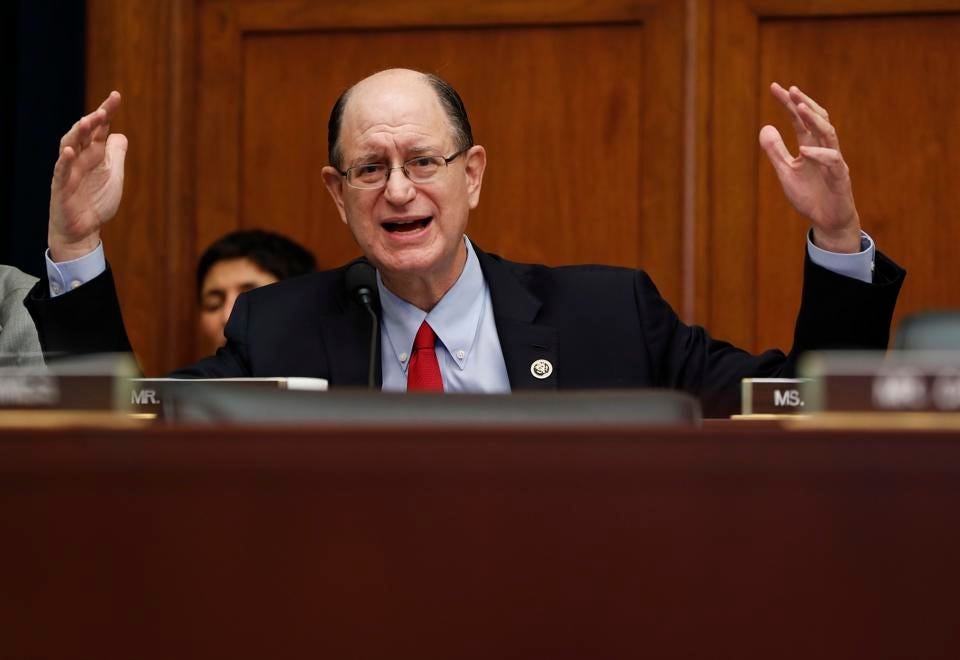Bitcoin Is Not a Threat to US Dollar
The rising level of interest in Bitcoin from retail and institutional investors have become too significant not to neglect. Though the leading cryptocurrency is at nascent stage, more investors are purchasing it as a store of value.

The question about the end of the US dollar as a reserve currency has been on the minds of several thought leaders in the political sphere and traditional financial space. In the 2019 Congress hearing regarding Facebook’s digital currency Libra project, US Congressman Brad Sherman warned that Bitcoin and other cryptocurrencies have the potential to threaten the US dollar over the global financial system. In December 2020, Larry Fink, BlackRock CEO, asserted that cryptocurrencies pose a threat to the global financial system.
This article therefore explores the potential of Bitcoin to become a global currency, possible risks and the benefits posed by the crypto when adoption ascends.
Safe Haven Asset
While Bitcoin is making its way across the globe, it is making more traction in certain regions than others. Some of the underdeveloped countries with high levels of inquiries about cryptocurrency assets include Cuba, Libya, Ukraine, Palestine, and Syria.
This shows that people are worried about their money being blown away by either general volatility or inflationary pressure in particular nations.
People are worried about their own financial futures, and as a result are increasingly investing in Bitcoin as a safe haven asset. People are looking for a natural hedge to those assets that are either unstable or seeing lots of potential inflationary headwinds. The expanding list of billionaires like Paul Tudor Jones and Stanley Druckenmiller have made bets on Bitcoin’s success as they see it as a hedge against inflation.

The list of the countries that have the most Bitcoin HOLDers include the United States, Romania, China, Spain, Japan, Switzerland, and South Korea. Other regions becoming more accepting of Bitcoin and other cryptos include Malta and Cyprus as well as underdeveloped countries experiencing economic uncertainty and currency volatility such as Zimbabwe, Venezuela, and others.
Most of these have to do with currency debasement fears that are rising on a global scale.
Decentralized Nature
PayPal co-founder Peter Thiel recently said that Bitcoin should be considered as a “Chinese financial weapon” and a real threat to US global power. However, due to the decentralized nature of cryptocurrencies, it is difficult to argue that Bitcoin is a tool created to deliberately destabilize the US dollar.
People are finding new ways to invest and they are using online platforms like TradingView to track investment opportunities online.
When asked why investors from underdeveloped countries are not interested in traditional assets like the US dollar or Gold, Pierce Crosby, TradingView general manager, stated that nobody can beat the internet.
The US dollar was made the world reserve currency in the Bretton Woods Agreement of 1944, at a time when the world looked for central authority. The world now is in modern state of comparative security further promoted by the increase technology and the internet. Bitcoin differs intrinsically from fiat currencies issued by central banks (centralized authorities) since it is decentralized (source).
Volatile Market
Bitcoin will increasingly become relevant as a means of payment and an alternative asset, but it is unlikely to displace the US dollar.
For Bitcoin to be considered as fiat, legal tender, it should at a minimum be useful as a unit of account, a medium of exchange (i.e., a means of payment) and a store of value (i.e., the cryptocurrency should hold its value over time and not depreciate or fall as quickly as it does).
Besides that, Bitcoin faces intense competition from nations and central banks that are not reluctant to lose their dominant positions as issuers of fiat currencies. Governments have started discussing ways to digitize fiat currencies as an effort to retain their relevance in the financial markets. Several are already conducting experiments with digital currencies that use blockchain technologies that may weaken the increased adoption that Bitcoin currently enjoys.
Though Bitcoin is increasingly utilized as a medium of exchange, it is unlikely that it will ever function strongly adequate as a unit of account and store of value given its highly volatile nature. Bitcoin price climbed to $ 50,000 per coin for the first time in February 2021 after big firms like Mastercard, BNY Mellon, PayPal, and Tesla showed support for the crypto.

Bitcoin further hit over $ 56,000 level after Tesla accepted the cryptocurrency as payment option for its products and services in March. However, Bitcoin faced bloodbath in the month of May as the crypto wiped out its value by about 50% to trade around $ 36,000 level after Elon Musk’s Tesla halted BTC payments due to concerns over rising use of fossil fuels for Bitcoin mining. The crypto further dropped its price to trade around $ 30,000 level after the US Treasury Department called for new regulations that would require large crypto transfers to be reported to the Internal Revenue Service and also Chinese authorities imposed a crackdown on cryptocurrency mining and transactions.
Currency Competition
James Bullard, the president of the US Federal Reserve Bank of St. Louis, made some recent comments, stating that Bitcoin is not a threat to the US dollar.
In February 2021, Bullard told CNBC that he believes the rising interest in Bitcoin does not pose a serious threat to the US dollar as the world’s reserve currency.
When considering whether crypto assets present a threat to the US dollar, Bullard emphasized that there is nothing new about competition, saying that it is something that has gone on for centuries.
Bullard stated: “It is a currency competition, and investors want a safe haven. They want a stable store of value, and then they want to conduct their investments in that currency.”
Although, Bullard admitted that both the Euro or the Chinese renminbi are strong currencies, he said that neither of these is going to replace the US dollar.
“It’d be very hard to get a private currency that’s really more like gold to play that role so I don’t think we’re going to see any changes in the future,” he said.
Regulation Problem
Furthermore, adoption of Bitcoin still poses several threats and risks to tax evasion, financial integrity, and effective financial regulation. As a result, adequate regulation would be required before Bitcoin can move to the next step, from a speculative asset to an asset with real utility in the world.
In February, US Treasury Secretary Janet Yellen cited Bitcoin’s volatility as an issue of concern and warned investors about potential losses they can suffer. The Treasury Secretary acknowledged that the US does not have adequate regulatory framework to deal with risks that Bitcoin poses to global monetary policy and financial stability.
If such issues are not addressed, then Bitcoin is unlikely to ascend to its dominant role as a global reserve currency in the future. The size of the US economy and its financial systems suggest that the US dollar will remain the anchor of the global economy for coming years.
Business & Finance Articles on Business 2 Community
(47)


